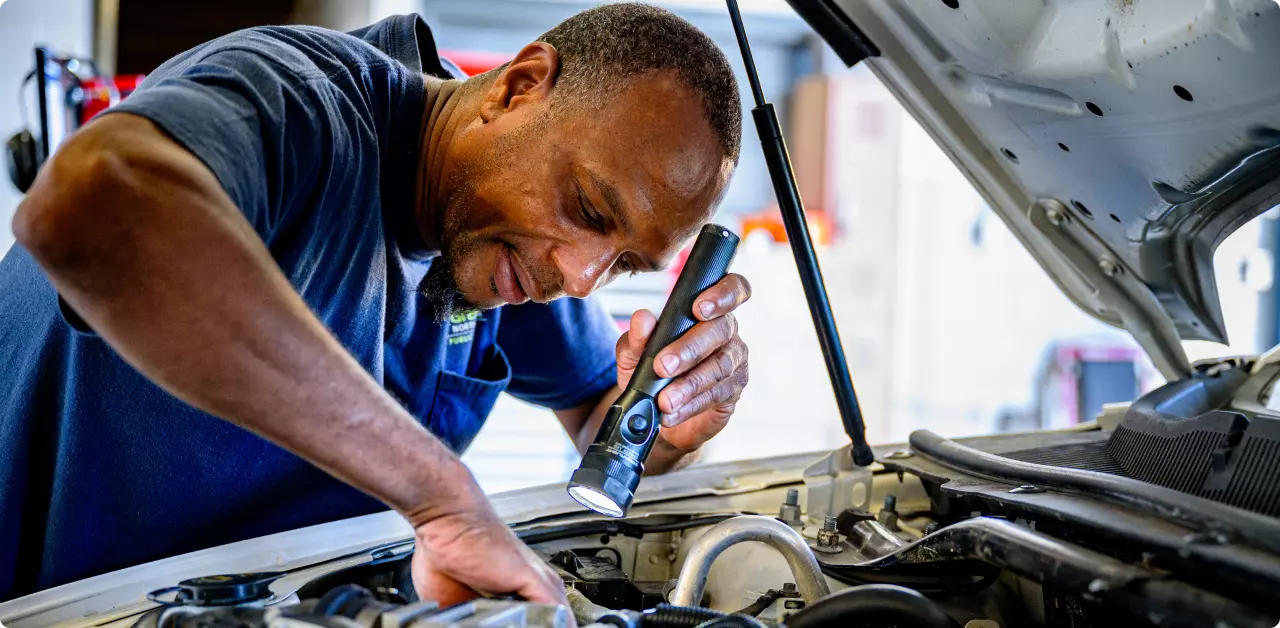All Categories
Featured
Long-distance travel can be an exciting possibility to discover brand-new areas, yet it's important to ensure your automobile is gotten ready for the trip. A little precautionary maintenance can go a lengthy method in preventing break downs and making sure a smooth, worry-free trip. Here's an extensive overview to preparing your auto for a long-distance journey.
![]()
![]()
Final thought. Proper vehicle prep work can make all the distinction in having a smooth, satisfying journey. By examining fluid degrees, examining brakes and tires, ensuring your battery and lights remain in good condition, and loading an emergency kit, you can prevent common concerns and focus on appreciating your experience. Taking these steps will not just maintain you risk-free however will help your lorry run successfully throughout your trip. Safe travels!

- Perform a Full Liquid Examine. Fluid degrees play a significant duty in your vehicle's overall efficiency, and keeping them in check prior to a lengthy road journey is essential. Start by inspecting the engine oil, brake fluid, transmission fluid, coolant, and windshield washer fluid. Reduced fluid levels or filthy oil can create engine damage or inadequate efficiency. Consider having it done before your journey if it's been a while since your last oil adjustment. In addition, examine the coolant degrees to stop your engine from overheating during long drives.
- Inspect the Tires. Begin by examining the tire stress utilizing a gauge and readjust them to the supplier's recommended degrees, which can be discovered in the owner's manual or on a sticker inside the driver's side door framework. Examine the tire tread depth to make sure they are not worn down.
- Take a look at the Battery. A dead battery can leave you stranded in the middle of nowhere, so ensuring your battery is in good condition is critical. If needed, inspect for any noticeable corrosion on the terminals and clean them with a mix of cooking soda and water. Have it tested at a car components save to determine if it still holds a charge if your battery is more than 3 years old. If you notice signs of weakness or the battery is close to its expiration date, it's an excellent concept to replace it before striking the road.
- Test the Brakes. The brake system is just one of the most important security attributes of your vehicle, and you do not wish to take any type of possibilities while traveling fars away. If your brakes are making weird sounds or you discover a difference in exactly how the brake pedal really feels, have them inspected prior to you leave. Brake blades and pads can use down in time, and taking a trip long ranges can worsen existing concerns. Ensure the brake fluid goes to the proper level to maintain ideal stopping efficiency.
- Check the Cooling and Heating Unit. Long trips can entail both hot and cool problems, so it's vital to examine that your vehicle's heating & cooling system is operating correctly. Check the a/c and heating system to see to it they are working properly. If you see unusual scents, sounds, or an absence of cooling or heating, it may deserve visiting a technician prior to your trip to stay clear of pain throughout your travels.

- Make certain All Lights Are Functioning. Having functioning lights is vital for both your presence and for other drivers to see you when driving. Examine that all lights-- fronts lights, taillights, brake lights, turn signals, and hazard lights-- are functioning. If any bulbs are out, change them. Additionally, guarantee your fronts lights are tidy and not dimming because of dust or clouding, as this can substantially minimize your capacity to see during the night.
- Change Windshield Wipers and Check the Windshield. Visibility is vital when driving fars away, specifically throughout rain, snow, or other adverse weather. Prior to you leave, examine your windscreen wipers to guarantee they remain in great condition and change them if they are split, spotting, or ineffective. Inspect the windscreen for cracks or chips, as these can increase while driving at high rates, making it difficult to see the roadway clearly.
- Load an Emergency Package. Even with thorough preparation, it's always smart to have an emergency situation set in case something goes incorrect during your journey. Consist of fundamentals such as a first-aid set, flashlight, jumper cable televisions, fundamental devices, tire repair work package, and a spare tire.
- Plan Your Path and Take Breaks. Mapping out your travel course beforehand can help prevent unanticipated detours or roadway closures. Make sure to prepare for normal breaks to extend your legs, moisturize, and refuel both your automobile and on your own. Fatigue can establish in after hours of driving, so it is necessary to stop every few hours to maintain alertness and security.
- Set Up a Pre-Trip Inspection. If you're not sure concerning your car's preparedness, consider scheduling a pre-trip inspection with a trusted auto mechanic. A specialist examination can recognize any potential problems that can arise throughout your trip and give you assurance knowing that your automobile is in top shape.
Final thought. Proper vehicle prep work can make all the distinction in having a smooth, satisfying journey. By examining fluid degrees, examining brakes and tires, ensuring your battery and lights remain in good condition, and loading an emergency kit, you can prevent common concerns and focus on appreciating your experience. Taking these steps will not just maintain you risk-free however will help your lorry run successfully throughout your trip. Safe travels!
Latest Posts
Eco-Friendly Bath Remodels with Bath Fitter
Published Apr 19, 25
1 min read
Digging In at Deauville Inn
Published Apr 19, 25
2 min read
Teenager Freedom Account: A Smart Start to Financial Independence
Published Apr 19, 25
1 min read